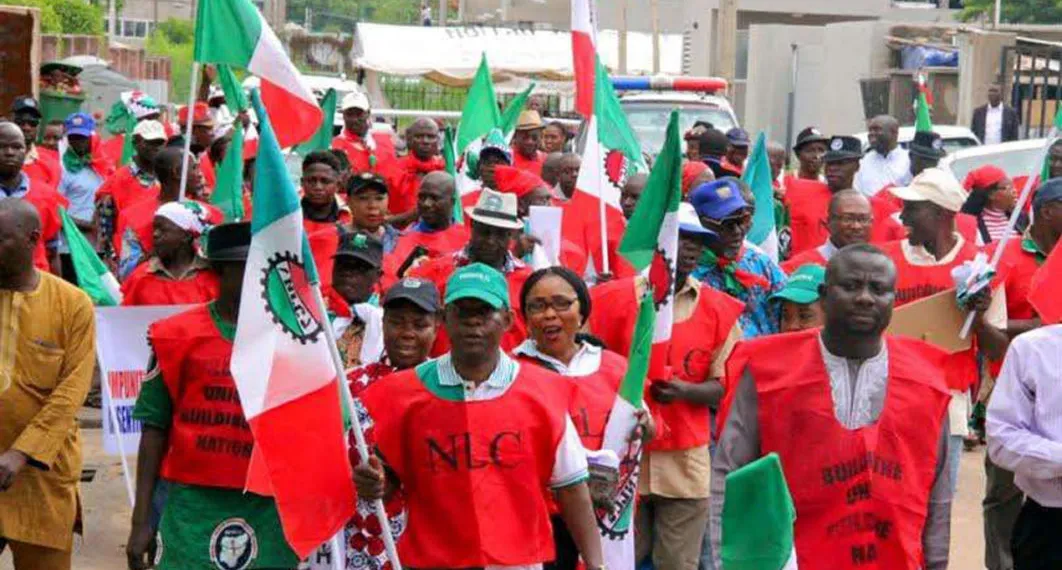NEWS
Labour could resume strike tomorrow

The leadership of the Nigeria Labour Congress (NLC) and the Trade Union Congress (TUC) has rejected the ₦62,000 minimum wage proposal put forth by President Bola Tinubu’s government, calling it a “starvation wage.”
This was disclosed by Chris Onyeka, Assistant General Secretary of the NLC, during an appearance on Channels Television’s “The Morning Brief,” on Monday.
Onyeka made it clear that the unions would only accept a minimum wage of ₦250,000, given the current economic realities in Nigeria.
“Our position is very clear. We have never considered accepting ₦62,000 or any other wage that we know is below what we know is able to take Nigerian workers home. We will not negotiate a starvation wage,” he stated.
He emphasized that the union’s demand of ₦250,000 is a substantial concession to the government and other social partners, considering the cost of living.
“We are not just driven by frivolities but the realities of the marketplace; realities of things we buy every day: bag of rice, yam, garri, and all of that,” Onyeka added.
Due to the government’s failure to meet their demand within the given one-week ultimatum, the unions are poised to resume a nationwide strike starting Tuesday.
Onyeka stressed that the Federal Government and the National Assembly have the responsibility to address their demands.
“Our demand is there for them (the government) to look at and send an Executive Bill to the National Assembly, and for the National Assembly to look at what we have demanded, the various facts of the law, and then come up with a National Minimum Act that meets our demands,” he said.
When asked about the unions’ next steps if the government insists on the ₦62,000 proposal, Onyeka reiterated that the nationwide strike, which was previously paused by the Labour congresses, could resume.
“It was clear what we said. We said we are relaxing a nationwide indefinite strike. It’s like putting a pause on it. So, if you put a pause on something and that organ that governs us as trade unions decides that we should remove that pause, it means that we go back to what was in existence before,” he explained.
As the ultimatum nears its end, all eyes are on the Federal Government’s response to the unions’ demands, which could determine whether Nigeria faces another round of industrial action.